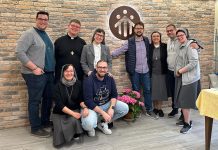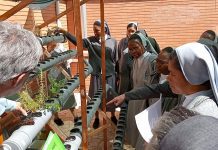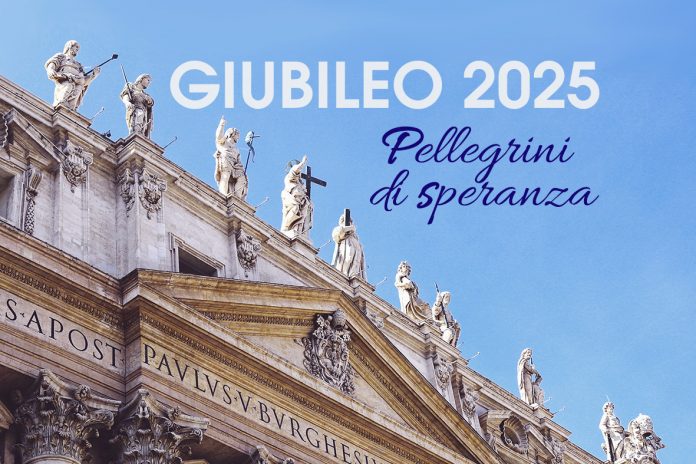Rome (Italy). On 11 February 2022, with a letter addressed to Msgr. Rino Fisichella, President of the Pontifical Council for the Promotion of the New Evangelization, Department entrusted with the organization of the Holy Year, Pope Francis announces Jubilee 2025.
In the Letter, the Pope recalls the meaning of the Jubilee, “an event of great spiritual, ecclesial, and social importance”, experienced by the faithful as a “special gift of grace, characterized by the forgiveness of sins and, in particular, by indulgence, the full expression of God’s mercy.”
The first Holy Year was established in 1300 by Pope Boniface VIII, with a first secular, then a fifty-year anniversary, and finally fixed for every twenty-five years. In the Jubilee year, a time of invitation to conversion, the people of God are called to make a pilgrimage, to cross the Holy Door, and to venerate the relics of the Apostles Peter and Paul kept in the Roman Basilicas, gestures of witness and renewal in the faith. “Millions and millions of pilgrims, over the centuries, have reached these holy places giving living witness to the faith of all time.”
The most recent jubilee event is the Great Jubilee of the year 2000, opened by St. John Paul II, which celebrated the two thousand years of the birth of Jesus Christ and the entry of the Church into the 3rd millennium of its history. Pope Francis also recalls the significant phase of the Extraordinary Jubilee of Mercy, from 8 December 2015 to 20 November 2016, which he wanted “to rediscover all the strength and tenderness of the Father’s merciful love”, and “to be witnesses to it in our turn.”
The Pope says, “The milestone of the first twenty-five years of the 21st century is now near, and we are called to put in place a preparation that allows the Christian people to live the Holy Year in all its pastoral significance.”
Pilgrims of hope is the motto chosen by Francis, in a context in which “there has not been a Country that has not been shocked by the sudden epidemic” that has “touched the drama of death in solitude, uncertainty, and the provisional nature of existence.” Hence the need to “keep burning the torch of hope that has been given to us, and do everything possible so that everyone regains the strength and certainty to look to the future with an open spirit, a confident heart, and a far-sighted mind” and the expectations of the Holy Father:
“The next Jubilee will greatly favor the recomposition of a climate of hope and trust, as a sign of a renewed rebirth of which we all feel the urgency.”
Another aspect recalled is that of caring for the common home, with the hope that this intention will not be lacking in living the Jubilee year. “Feeling that we are all pilgrims on the land where the Lord has placed us so that we cultivate and guard it (cf. 2,15), we do not neglect along the way, to contemplate the beauty of creation and to take care of our common home.”
To Msgr. Fisichella and to the Dicastery that promotes the New Evangelization, he entrusts the task of “finding the appropriate forms so that the Holy Year can be prepared and celebrated with intense faith, living hope, and active charity”, and the journey towards the Jubilee may strengthen and express “the common journey that the Church is called to undertake in order to be ever more and ever better a sign and instrument of unity in the harmony of diversity.”
In this time of preparation, awaiting the Bull of Indiction which will contain the information necessary to celebrate Jubilee 2025, the Holy Father imagines, and rejoices in thinking about it, a year of vigil 2024 like “a great ‘symphony’ of prayer”:
“First of all, to recover the desire to be in the presence of the Lord, listen to Him and adore Him.” Prayer “to thank God for the many gifts of His love for us and to praise His work in creation”, which translates into solidarity and the sharing of daily bread.” Prayer “as the main road to holiness, which leads to living contemplation even in the midst of action.”
Pope Francis hopes for “an intense year of prayer, in which hearts open to receive the abundance of grace”, in which to make the Our Father a program of life as disciples.




















